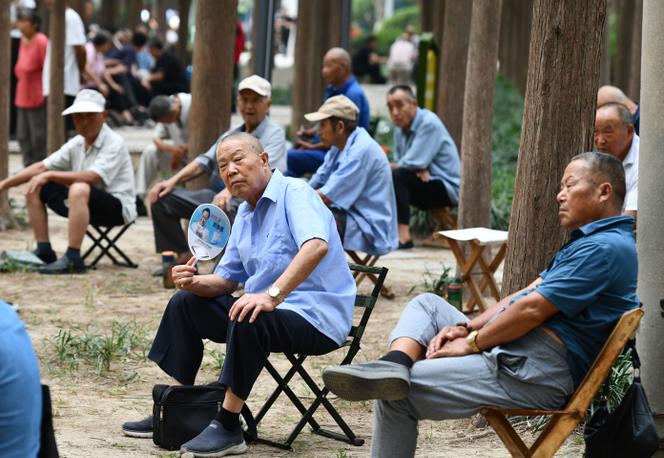


In every country, even China, the subject of retirement is a flammable one. Yet on Friday, September 13, the Communist Party resolved to raise the retirement age, which until now has been one of the lowest among the major economies, despite the accelerated aging of the population. The reform, which will start to go into effect in 2025, will be cautiously spread out over 15 years. But the retirement age will gradually rise from 60 to 63 for men, from 50 to 55 for women in manual jobs and from 55 to 58 for those employed in offices, the official Xinhua News Agency announced on Friday, September 13.
Such a reform was necessary in a country where life expectancy, thanks to rapid economic development but also to basic healthcare facilities, has risen from around 40 years in the 1950s to 71.6 years in 2000 and over 78 years today, on par with the US.
"The previous ages were set in the early 1950s. In 70 years, the country's economic, social and demographic situation has changed enormously, and workers' needs have diversified too, necessitating adjustments to the legal retirement age," Wang Xiaoping, minister of human resources and social security, explained at a press conference on Friday. For a long time, on the contrary, China was worried instead about the scale of its demographics. "Are there too many Chinese?" experts were still asking in the title of a Chinese book published in 2012. The large labor surplus and low life expectancy at the time explain why the retirement age was set so low in 1951, two years after the founding of the People's Republic.
The drastic one-child policy imposed from 1980 onward had the effect of severely limiting births. Despite its abolition in 2016, births rates have not picked back up, mainly due to the cost of living. In fact, the number of births has continued to decline, with the number of Chinese falling for the second consecutive year in 2023. The proportion of Chinese considered to be of working age (16 to 59) fell from 62% to 61.3% of the population between 2022 and 2023.
There are now 297 million people over 60, compared with 126 million in 2000. In 2019, a study by the Chinese Academy of Social Sciences highlighted the risk of pension funds running dry by 2035.
The single party had already made it known in July, at its meeting setting out the broad economic guidelines for the coming years – the Third Plenum of the 20th Central Committee of the Communist Party – that pension reform was under consideration. The official press has been preparing public opinion in recent days. "Raising the retirement age is a major reform that is needed in view of the aging population and allows for the best use of China's human resources," Mo Rong, director of the Chinese Academy of Labor and Social Security, explained to the Xinhua News Agency on Tuesday, September 10.
You have 66.19% of this article left to read. The rest is for subscribers only.
